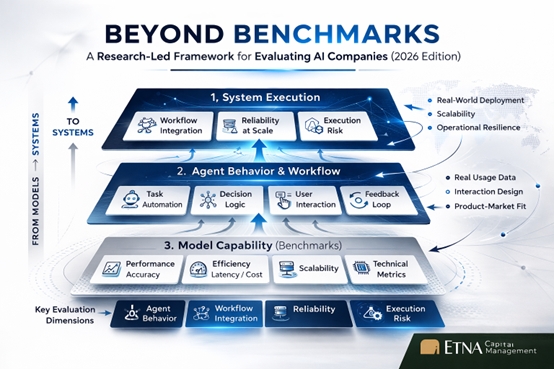Most business professionals have read multiple articles on how artificial intelligence is a game-changer. To that end, a recent Fortune poll reported that 79% of CEOs polled expect generative AI investments to increase efficiency in their business.
Now, the concept of the AI-native company is a hot topic and a desired future state for many tech companies. However, being an AI-native company requires this emerging technology to be a core business model component, with every internal workflow approached with a lens toward exploiting AI capabilities. Management must prioritize data and analytics-driven decision-making. The overarching first company principle must be to use automation and efficiency through AI.
Are there many emerging AI-native companies out there? No, there really aren’t. But over three-quarters of existing technology companies are already investing in AI.
Over the past six months, I have been meeting with executives on the state of technology business models. In those discussions, we click into the state of AI capabilities. I can attest that the majority of these companies still need a mature strategy to support the investment and deployment of new AI capabilities. The role of AI within technology business models is already rapidly evolving. Technology companies that migrate toward an AI-native posture are not only going to be better positioned to compete effectively in their marketplaces, they’re going to dominate. Those are the high stakes facing tech leaders today.
The truth is, AI is going to disrupt many industries, however, knowledge-worker intensive industries—including tech— have the greatest potential for unprecedented disruption. Today, our research team has identified over 70 potential use cases for AI across technology organizations. The majority of those use cases can improve companies in three key ways:
- Data-driven decision-making
- Efficiency and cost reduction
- Enhanced customer experience
Let’s take a closer look at these benefits.
Data-Driven Decision-Making: AI can propel informed, data-driven decision-making across all aspects of a business. Any artificial intelligence capability must have a stable, company-wide data science and analytics function. AI can analyze vast amounts of data quickly and accurately, providing valuable insights for decision-making. Accordingly, data-driven decisions should lead to better outcomes, improved competitiveness, and increased profitability.
Leveraging this dimension of AI requires specialized data science and data analytics functions. Simply put, data science helps an organization understand where data-driven decision-making could be applied. Then, data analytics helps organizations understand where data-driven decision-making should be applied.
Efficiency and Cost Reduction: AI can automate some tasks, streamline operations, and optimize resource allocation, which are tasks that previously were only effectively performed by human beings. These abilities are primarily successful through machine learning (ML) and robotic process automation (RPA).
Through ML, enormous volumes of data are used to train algorithms through various approaches, identifying patterns where the process becomes known and the outcomes become expected. Then, RPA applies the ML data to automate tasks with improved efficiency and fewer errors.
Enhanced Customer Experience: Finally, AI can effectively engage customers and deliver high levels of customer satisfaction. Natural language processing (NLP) and Generative AI are quickly becoming effective tools to enhance customer satisfaction.
NLP solutions focus on interactions between computers, humans, and human language. A digital system can understand, interpret, or act on spoken or written information by treating this information as data.
Generative AI is an emerging body of artificial intelligence that leverages the previously mentioned aspects of the technology. By leveraging data science and machine learning, AI can be used to create content that is often indistinguishable from human-generated content.
These two tools are regularly combined to power chatbots, virtual assistants, and recommendation engines with a high level of personalization that would otherwise be too cost-prohibitive to deliver in current business models.
Based on these three areas of business improvement, we can see how AI will change how tech companies operate.
By harnessing AI for tasks like predictive analytics, product development, and marketing automation, B2B firms can differentiate themselves from competitors and offer innovative solutions to their clients. By the way, there are already several companies that provide AI-driven competitive analysis capabilities as a service! This is analysis that far surpasses any level of analysis an existing competitive analysis team could hope to complete using their current staff.
AI will also have an enormous ability to impact a company’s scalability. It is much easier to change bits than atoms. In other words, scaling up and down software capacity is more accessible than hiring, training, and deploying human capital.
This tech will also be used to identify and mitigate risks in supply chains, financial operations, cybersecurity, and the impact of new market entrants. A data-driven, proactive approach to risk management will be a game-changer for leadership teams—not having this capability in place when competitors do could prove disastrous.
Additionally, AI can help companies comply with evolving regulations and standards in their primary industries. Businesses can reduce the risk of costly penalties and legal issues by automating compliance checks and reporting.
Of course, this is not an exhaustive list of how AI will evolve tech business models. However, the list is long enough to support our main assertion: AI will fundamentally disrupt the operating model of technology companies. How is your company navigating these changes?
Thomas Lah is the executive director and executive vice president of TSIA, the leading association for today’s technology and services organizations. For more than 20 years, he has been helping many of the world’s largest technology companies improve the efficiency of their daily operations. He is the author of Technology-as-a-Service Playbook: How to Grow a Profitable Subscription Business (2016) and Digital Hesitation: Why B2B Companies Aren’t Reaching Their Full Digital Potential (2022). Lah also hosts TSIA’s podcast, TECHtonic: Trends in Technology and Services.







